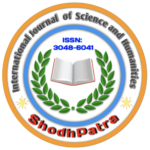| Article Title |
The Body as Canvas: Visual Language of Gond Tribal Tattoos in Nagpur District |
| Author(s) | Nivedita Laxman Thakur, Dr. Avadhut Atre. |
| Country | India |
| Abstract |
This study focuses on the cultural and symbolic significance of tattooing tradition among the Gond population of Maharashtra's Nagpur district. Fieldwork, participant observation, and interviews with Gond women, elders, tattoo artists and tattoo researchers form the basis of this ethnographic study. To understand tattooing as a visual language that communicates identity, spirituality, and social affiliation, the research records traditional motifs & its meanings, tattooing techniques, and design placement. According to research, Gond women's tattoos serve as protective, manifestation, and skin-beautification marks that are ingrained in their traditional cosmology. To connect the body to spiritual and cultural continuity, elders highlighted tattoos as bearers of ancestral memory. Younger participants, on the other side, showed hesitation, pointing out that the toppling of traditional tattooing has been influenced by urban migration, modern lifestyles, and societal stigma. This study presents evidence that tattoos are both a type of body art and a repository of intangible history of the Gond people in Nagpur. Due to downfall of this precious culture, the study emphasizes the significance of recording and conserving Gond tattoo traditions. |
| Area | Fashion Studies |
| Issue | Volume 2, Issue 11 (November 2025) |
| Published | 2025/11/06 |
| How to Cite | Thakur, N.L., & Atre, A. (2025). The Body as Canvas: Visual Language of Gond Tribal Tattoos in Nagpur District. ShodhPatra: International Journal of Science and Humanities, 2(11), 1-7, DOI: https://doi.org/10.70558/SPIJSH.2025.v2.i11.45386. |
| DOI | 10.70558/SPIJSH.2025.v2.i11.45386 |
ShodhPatra: International Journal of Science and Humanities

 View / Download PDF File
View / Download PDF File